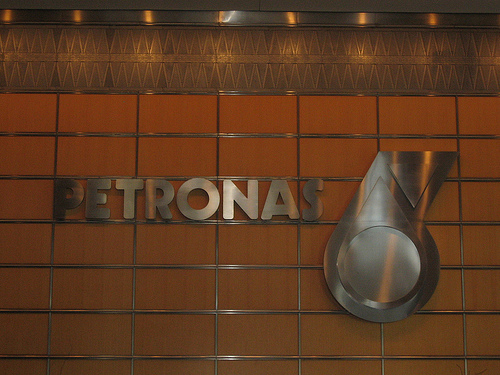Change the conversation, support rabble.ca today.
In the beginning of December, the Harper government gave its approval to two takeover deals in the energy sector. Nexen is involved in offshore production operations around the world and in oil sands in western Canada. It will now be the property of CNOOC, a Chinese corporation. The second deal sealed Progress Energy’s takeover by the Malaysian giant Petronas.
These two takeover deals bear many resemblances. Both transactions involve important investments: the $6-billion Progress Energy takeover appears comparatively modest in regard of the $15-billion Nexen takeover. Another common trait concerns the ownership of the company taking over management of Canada’s natural resources exploitation. Indeed, they are not only foreign businesses, they are foreign government-owned corporations. Oh sure, they’ve agreed to conform to certain conditions regarding governance, transparency, disclosure, and consented to abide by Canadian laws (sic!). Nonetheless, foreign takeovers do not bode well for Canada’s ability to write its own independent and ecological energy policy.
The rule or the exception?
The Prime Minister tried to reassure Canadians by saying that these takeover deals should not, and would not, become the norm. Mr. Harper, who defends the free market, doesn’t intend on introducing legislation to prevent foreign takeovers. However, he plans on blocking them. The Prime Minister seems to be saying one thing and approving the opposite.
In short, the Prime Minister tells us that Canada’s interests (as well as its core values of economic liberty) would suffer if foreign government-owned corporations became key economic players on our territory. When multinational energy corporations do just that, oddly it’s no longer a problem. Canada is open to business!
But don’t worry, according to the Prime Minister, Canadians haven’t worked this hard to reduce the state’s role in their lives only to see foreign states simply come in and take its place. Boy, do we feel relieved!
Natural resource development as economic development strategy
More seriously, we should ask what benefit Canadians derive from banking on a resource-based economic development strategy. Indeed, 1) whether they be owned privately or by states, the businesses which benefit from natural resource development are not Canadian and 2) a good number of jobs are filled by temporary migrant workers.
For example, the Quebec government’s notorious Plan Nord relies essentially on multinational mining companies to take over northern Quebec’s resources. Since coming into power, Quebec’s new Premier, Ms. Pauline Marois, has constantly been courting international investors. In addition to its traditional ties to French industrialists, Quebec is opening up to more and more Asian investments.
Out of the 23 working mines in Quebec, 15 have their head offices located outside of the province. In addition, currently four big projects have received major investments from Chinese, Indian, and Japanese corporations, respectively Chengdu Tianqi Industry Group, Tata Steel, and Japan Oil and Gaz Metals. Even though these investments remain minority investments for the moment, it’s important to introduce regulatory standards right away to ensure that this tendency does not lead to majority investments.
For the moment, we let foreign companies extract and leave with resources, devoid as we are of any political will to encourage secondary and tertiary processing on our territory. But jobs related to mining development and quarry exploitation have dropped nearly 60 per cent between 1961 and 2009, in part because of mechanization. Therefore, an economic development strategy in which natural resource extraction plays a very large part will not create jobs, which are to be found in secondary and tertiary processing. Unfortunately the government hasn’t the slightest desire to prevent our resources from being processed abroad.
Furthermore, fly-in fly-out means that a good number of jobs created are not filled by local workers. The point is not to criticize foreign workers for taking the opportunity to temporarily increase their income and provide for their family, but rather to question the validity of such a development strategy. In terms of ethics, let us recall that, generally, the camps available to fly-in-fly-out workers nearby mines restrict certain civil liberties. Moreover, these workers are not entitled to the same compensation as Canadian wage earners in the same sector. From an economic standpoint, a good chunk of the compensation is not spent in the resource regions, hindering their socio-economic regional development.
It’s high time, in Quebec and in Canada, to carry out a true examination of our development strategies. We know it’s impossible to respond to the economic and environmental challenges of the next decades if we keep on systematically encouraging short-term extraction rather than seeking a long-term development of resources which would be more profitable economically, environmentally, and socially.
This article was written by Philippe Hurteau and Bertrand Schepper, a researcher with IRIS, a Montreal-based progressive think tank.
Photo: JaseMan/Flickr



